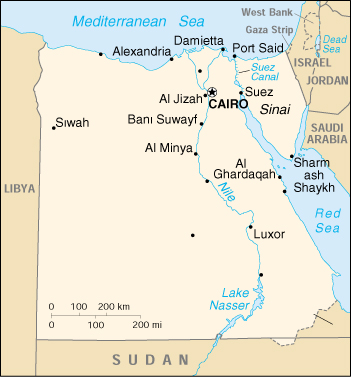

Status Quo Side: Egypt
Non-Status Quo Side: UK, France
Region: Middle East
Conflict Type: Interstate
Issues in Dispute: Resources, Strategic
Rising Arab nationalism, led after 1952 by charismatic Egyptian President Gamal Abdel Nasser, brought pressure for British withdrawal from its residual imperial position in the region, revision of the Suez Canal agreements and encouragement of Algerian independence. In 1955 Nasser negotiated Soviet bloc arms which arrived via Czechoslovakia. In 1956, when the US withdrew its Aswan Dam aid offer, Nasser nationalized the Canal.
Britain and France, their economic and strategic interests menaced, planned contingent military action while negotiating under US pressure. UN talks in October gave some hope. But the US and UN underestimated British and French determination, in secret planning with Israel, to reverse Nasser's actions. When Israel attacked into the Sinai on October 29, Britain and France delivered an ultimatum in the UNSC demanding that Egypt and Israel withdraw 10 miles from the Canal.
Citing the ultimatum, Britain launched air attacks against Egyptian airfields (restrained and belated because of mounting fissures within Britain) while France gave air and naval support to Israel. As the UN was approving its first peacekeeping force (UNEF I) in a Special Emergency Session of the UNGA, British and French assault troops attacked and moved up the Canal. In the face of Soviet threats to send "volunteers", intense US pressure and potentially crippling political and financial costs, Britain backed down and agreed to the proposed UN force. [see SIN]
A cease-fire took effect. With the phased UNEF take-over, Britain and France completed withdrawal by December 23. British and French relations with the US and UN remained strained for some time.
Differences over Canal control evaporated as Egypt successfully took over its management, to the surprise and chagrin of former British and French owners who forecast Egyptian incompetence. [see AIW and MEW]